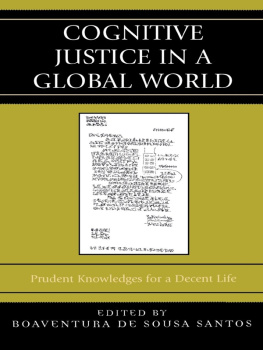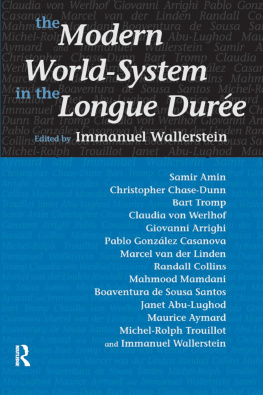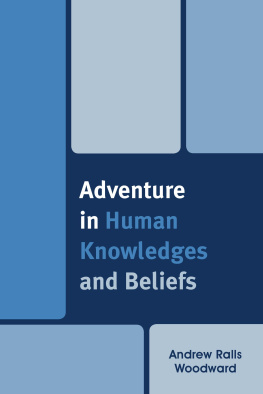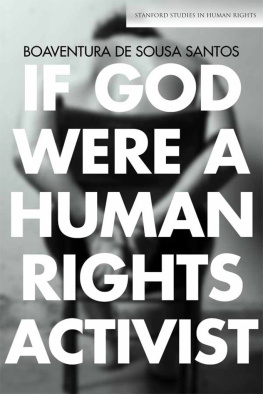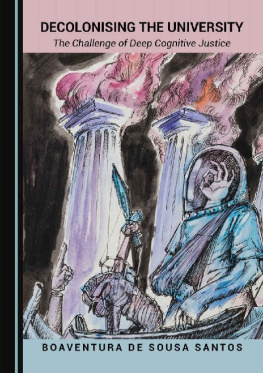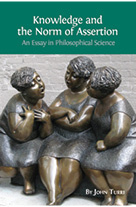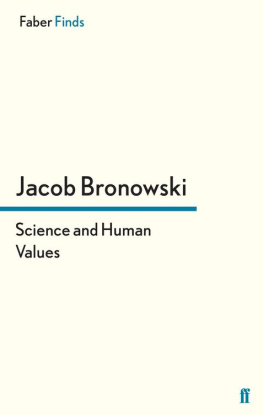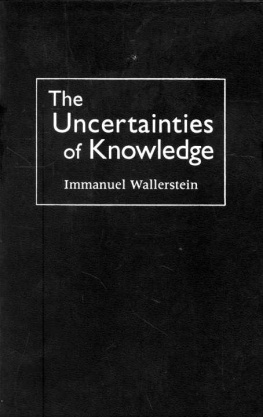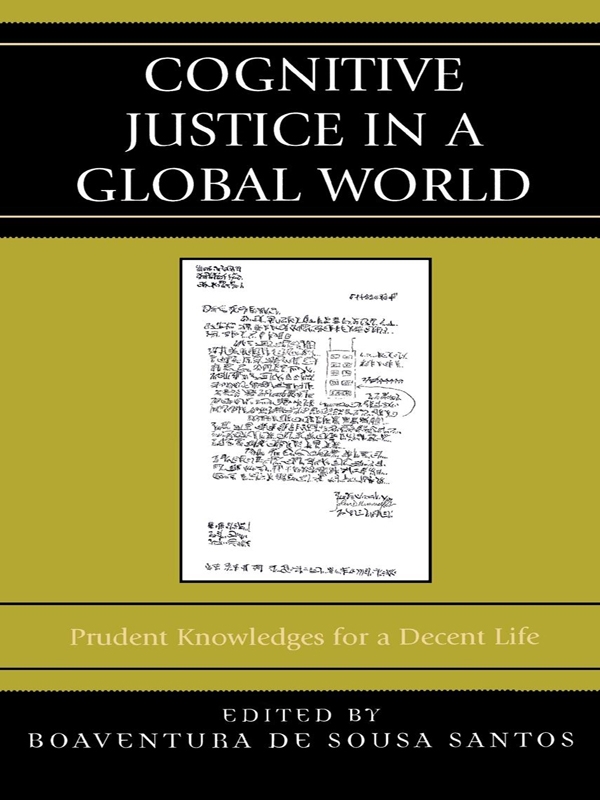About the Contributors
Orlando Fals Borda is professor emeritus at the National University of Colombia, where he was also dean of the Faculty of Sociology for many years. He was elected deputy of the Colombian National Constituent Assembly, and served also a vice-minister of agriculture in Colombia. He is the founder of the Foundation of Participatory Research in Bogot, in 1970. He is a recipient of Guggenheim, Kreisky, and Hoffman Awards.
Orlando Fals Borda is widely recognized as one of the leading theorists and practitioners of participatory action research. Among his publications, (coeditor with Muhammad Anisur Rahman) Action and Knowledge: Breaking the Monopoly with PAR (1991); (editor) Peoples Participation: Challenges Ahead (1998); The Origins and Challenges of Participatory Action Research (1999); Accin y espacio: autonomas en la nueva repblica (2000); Por qu el socialismo ahora?: Retos para la Izquierda Democrtica (2003); and Ante la crisis del pais: ideas-accin para el cambio (2003).
Arturo Escobar is professor of anthropology at the University of North Carolina at Chapel Hill, where he is director of the Institute of Latin American Studies. He is also a research associate of the Instituto Colombiano de Antropologa e Historia, Bogot.
He has published widely on subjects related to anthropology, Latin American studies, political ecology, development studies, cultural studies of science and technology, political economy, theories of complexity, and the North-South relations. Among his many publications are: Encountering Development: The Making and Unmaking of the Third World (1995); (coeditor with Gustavo Lins Ribeiro) World Anthropologies: Disciplinary Transformations within Systems of Power (2006); (coeditor with Jai Sen, Anita Anand, and Peter Waterman) The World Social Forum: Challenging Empires (2004); (coeditor with Sonia Alvarez and Evelina Dagnino) Cultures of Politics/Politics of Cultures: Revisioning Latin American Social Movements (1998).
Olival Freire Jr. is professor of history of physics at the Federal University of Bahia, Brazil. His research focuses on the history of physics in the twentieth century, by exploring the changes in the quantum controversy and the consensus and dissension in physics. In 2004 he was awarded a Dibner Senior Fellowship in History of Science.
Olival Freire Jr. has published in journals such as Historical Studies in the Physical and Biological Sciences and Studies in History and Philosophy of Modern Physics . Among his publications are: David Bohm e a Controvrsia dos Quanta (1999); Science and Exile: David Bohm, the Cold War, and a New Interpretation of Quantum Mechanics (2005).
Joan Fujimura is professor of sociology and former director of the Holtz Center for Science and Technology Studies at the University of WisconsinMadison. She has written on developments in genetics, molecular biology, biotechnology, biomedicine, HIV-AIDS research, and transnational bioscience in Japan and the United States. Her current research includes studies of race, medicine, and genetics, and of systems biology research. Joan Fujimuras recent publications comprise Sex Genes: A Critical Socio-Material Approach to the Politics and Molecular Genetics of Sex Determination ( Signs , 2006) and Postgenomic Futures: Translations across the Machine-Nature Border in Systems Biology ( New Genetics and Society, 2005). She is also author of Crafting Science: A Sociohistory of the Quest for the Genetics of Cancer (1996).
Leonard Kaplan is professor of law at the University of Wisconsin-Madison. His research interests include several areas of jurisprudence, legal process, law, theology and state, civil procedure, criminal law, criminal procedure and evidence, as well as religious studies. In 2002, Professor Kaplan received the Academys Michael Zeegers Lifetime Achievement Award for distinction in the pursuit of Scholarship, Pedagogy, and Human Rights Initiatives in the field of Law and Mental Health. Leonard Kaplan has coedited six books and written a large number of articles. He was a co-founder and coeditor-in-chief of a journal, Graven Images: Studies in Culture, Law and the Sacred. Also, and together with Beverly Moran he edited Aftermath: The Clinton Impeachment and the Presidency in the Age of Political Spectacle (2001).
Hugh Lacey is emeritus professor at Swarthmore College, Department of Philosophy. Previously, he also taught at the University of So Paulo (Brazil), University of Sydney, and University of Melbourne (Australia). His research interests include history and philosophy of science, philosophy of psychology, philosophy of social science, philosophy and biotechnology. In his research, Lacey has sought to explore the role of values in scientific inquiry by challenging the predominant view from the perspectives of postmodernists, feminists, radical-ecologists, religious fundamentalists, etc. Hugh Lacey has published many articles on science education; his recent books include: Is Science Value Free? Values and Scientific Understanding (1999); Psicologia Experimental e Natureza Humana: Ensaios de Filosofia de Psi cologia (2001); and Values and Objectivity in Science: The Current Controversy about Transgenic Crops (2005).
Richard Lee is professor of sociology at Binghamton University and Director of the Fernand Braudel Center. He supervises a research-working group on the Cultural Forms of the World-System. Richard Lees research agenda focuses on the long-term intellectual and disciplinary structures of knowledge formation in writings that range across the sciences, social sciences, and humanities. His most recent publications include: Life and Times of Cultural Studies: The Politics and Transformation of the Structures of Knowledge (2003); and the collections World-Systems Analysis: Contemporary Research and Directions (edited with Gerhard Preyer, 2004) and Overcoming the Two Cultures: Science versus the Humanities in the Modern World-System (coedited with Immanuel Wallerstein, 2004).
Francisco Lou is professor of economics at the Higher Institute of Economics and Management of the Technical University of Lisbon. He is also a member of the Portuguese Parliament. In 1999 he was awarded the prize of the History of Economics Association for the best article published in an international scientific journal. Francisco Lou has published widely, both in subjects related to the contemporary political situation of Portugal and Europe, as well as on economics. His research focuses on how the economy evolves through time, in order to offer a critical analysis of global capitalist development and design possible post-capitalist alternatives. Among his publications are: Turbulence in Economics (1997); Is Economics an Evolutionary Science? (with Mark Perlman, 2000); As Time Goes By: From the Industrial Revolutions to the Information Revolution (with Chris Freeman, 2001); and Ensaio geralpassado e futuro do 25 de Abril (edited with Fernando Rosas, 2004).
Maria Paula Meneses is a senior researcher at CES and also teaches at the Faculty of Economics of Coimbra University. Until 2002 she was an assistant professor of anthropology at Eduardo Mondlane University, Mozambique. Currently her research interests include identity processes, the production and reproduction of knowledges, postcolonial theory, epistemology, articulations between religion and politics, alternative mechanism of conflict resolution. As a scholar working on issues related to knowledge production, Maria Paula Meneses has been involved in research as well as in science policy making, all of them with a strong emphasis on Africa. Among her publications, coeditor with Boaventura de Sousa Santos and Joao Carlos Trindade are: Law and Justice in a Multicultural Society: The Case of Mozambique (2006); and When there are no problems, we are healthy, no bad luck, nothing: Towards an emancipatory understanding of health and medicine (in Boaventura de Sousa Santos, editor, Another Knowledge Is Possible: Beyond Northern Epistemologies, 2007).

